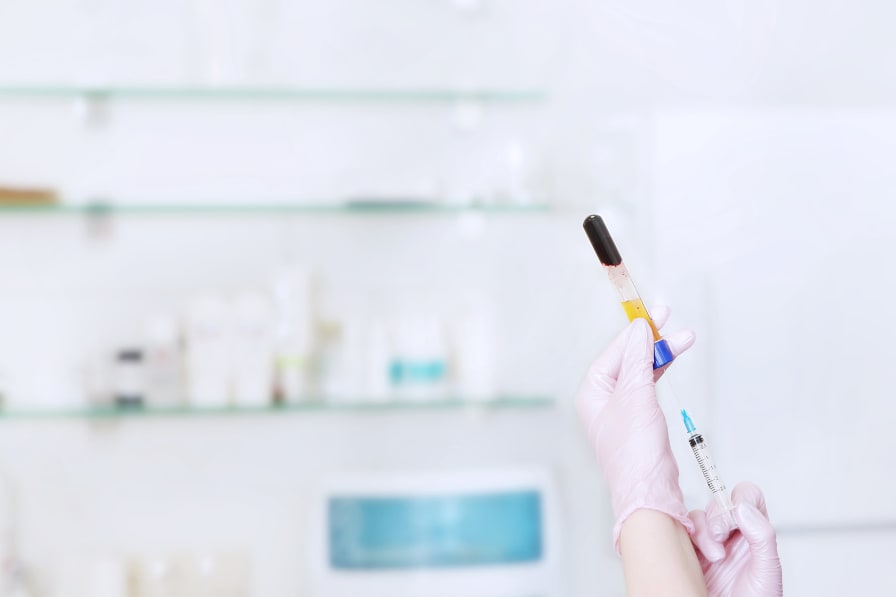Global Induced Pluripotent Stem Cell (iPS Cell) Industry
Since the discovery of induced pluripotent stem cells (iPSCs) a large and thriving research product market has grown into existence, largely because the cells are non-controversial and can be generated directly from adult cells. It is clear that iPSCs represent a lucrative market segment because methods for commercializing this cell type are expanding every year and clinical studies investigating iPSCs are swelling in number.

Therapeutic applications of iPSCs have surged in recent years. 2013 was a landmark year in Japan because it saw the first cellular therapy involving the transplant of iPSCs into humans initiated at the RIKEN Center in Kobe, Japan. Led by Masayo Takahashi of the RIKEN Center for Developmental Biology (CDB), it investigated the safety of iPSC-derived cell sheets in patients with macular degeneration. In another world-first, Cynata Therapeutics received approval in 2016 to launch the world's first formal clinical trial of an allogeneic iPSC-derived cell product (CYP-001) for the treatment of GvHD. Riding the momentum within the CAR-T field, Fate Therapeutics is developing FT819, its off-the-shelf iPSC-derived CAR-T cell product candidate. Numerous physician-led studies using iPSCs are also underway in Japan, a leading country for basic and applied iPSC applications.
iPS Cell Commercialization
Methods of commercializing induced pluripotent stem cells (iPSCs) are diverse and continue to expand. iPSC cell applications include, but are not limited to:

Therapeutic applications of iPSCs have surged in recent years. 2013 was a landmark year in Japan because it saw the first cellular therapy involving the transplant of iPSCs into humans initiated at the RIKEN Center in Kobe, Japan. Led by Masayo Takahashi of the RIKEN Center for Developmental Biology (CDB), it investigated the safety of iPSC-derived cell sheets in patients with macular degeneration. In another world-first, Cynata Therapeutics received approval in 2016 to launch the world's first formal clinical trial of an allogeneic iPSC-derived cell product (CYP-001) for the treatment of GvHD. Riding the momentum within the CAR-T field, Fate Therapeutics is developing FT819, its off-the-shelf iPSC-derived CAR-T cell product candidate. Numerous physician-led studies using iPSCs are also underway in Japan, a leading country for basic and applied iPSC applications.
iPS Cell Commercialization
Methods of commercializing induced pluripotent stem cells (iPSCs) are diverse and continue to expand. iPSC cell applications include, but are not limited to:
- Research Products: Market competitors provide iPSC specific tools to scientists worldwide, including human iPSC lines and differentiated cell types, as well as optimized reagents, protocols, differentiation kits, and more.
- Drug Development & Discovery: iPSCs have the potential to transform drug discovery by providing physiologically relevant cells for compound identification, target validation, compound screening, and tool discovery.
- Cellular Therapy: iPSCs are being explored in a diverse range of cell therapy applications for the purpose of reversing injury or disease.
- Toxicology Screening: iPSCs can be used for toxicology screening, which is the use of stem cells or their derivatives (tissue-specific cells) to assess the safety of compounds or drugs within living cells.
- Personalized Medicine: The use of techniques such as CRISPR enables precise, directed the creation of knock-outs and knock-ins (including single-base changes) in many cell types. Pairing iPSCs with genome editing technologies has added a new dimension to personalized medicine.
- Disease Modelling: By generating iPSCs from patients with disorders of interest and differentiating them into disease-specific cells, iPSCs can effectively create disease models in a dish.
- Stem Cell Banking: iPSC repositories provide researchers with the opportunity to investigate a diverse range of conditions using iPSC-derived cell types produced from both healthy and diseased donors.
- Other Applications: Other applications for iPSCs include areas like tissue engineering, 3D bioprinting, clean meat production, wildlife conservation, and more.
Since the discovery of iPSC technology in 2006, significant progress has been made in stem cell biology and regenerative medicine. New pathological mechanisms have been identified and explained, new drugs identified by iPSC screens are in the pipeline, and the first clinical trials employing human iPSC-derived cell types have been initiated.
Induced Pluripotent Stem Cell related Companies- Addgene, Inc.
- Aleph Farms
- Allele Biotechnology and Pharmaceuticals, Inc.
- ALSTEM, INC.
- American Type Culture Collection (ATCC)
- AMS Biotechnology Europe, Ltd. (AMSBIO)
- Applied Biological Materials, Inc. (ABM)
- Applied StemCell (ASC), Inc.
- Aruna Bio, Inc.
- Aspen Neuroscience, Inc.
- Axol Bioscience, Ltd
- BD Biosciences
- Beckman Coulter Life Sciences
- BioCat GmbH
- BlueRock Therapeutics
- BrainXell
- Cell Biolabs, Inc.
- Cell Signaling Technology
- Cellaria
- CellGenix GmbH
- Cellular Dynamics International, Inc.
- Cellular Engineering Technologies (CET)
- Censo Biotechnologies, Ltd.
- Century Therapeutics, LLC
- CiRA
- Corning, Inc.
- Creative Bioarray
- Cynata Therapeutics Ltd.
- Cytovia Therapeutics
- DefiniGEN
- Fate Therapeutics, Inc.
- FUJIFILM Cellular Dynamics, Inc.
- GeneCopoeia, Inc.
- GenTarget, Inc.
- Heartseed, Inc.
- InvivoGen
- iPS Portal, Inc.
- iXCells Biotechnologies
- Lonza Group, Ltd.
- Megakaryon Corporation
- Memorial Sloan-Kettering Cancer Center
- Merck/Sigma Aldrich
- Metrion Biosciences, Ltd.
- Miltenyi Biotec B.V. & Co. KG
- Ncardia
- NeuCyte
- Newcells Biotech
- ONO Pharmaceutical Co., Ltd.
- ORIG3N
- Oslo University Hospital
- PeproTech
- Phenocell SAS
- Platelet BioGenesis
- Pluricell Biotech
- PromoCell GmbH
- Qiagen
- R&D Systems, Inc.
- ReproCELL
- STEMCELL Technologies
- Stemina Biomarker Discovery
- Synthego Corp.
- System Biosciences (SBI)
- Takara Bio
- Takeda Pharmaceutical Co., Ltd.
- Tempo Bioscience
- Thermo Fisher Scientific, Inc.
- TreeFrog Therapeutics
- University of California
- VistaGen Therapeutics, Inc.
- Waisman Biomanufacturing
- xCell Science, Inc.
- Yashraj Biotechnology, Ltd.
.png)
.png)
.jpg)

.png)




.png)
Comments